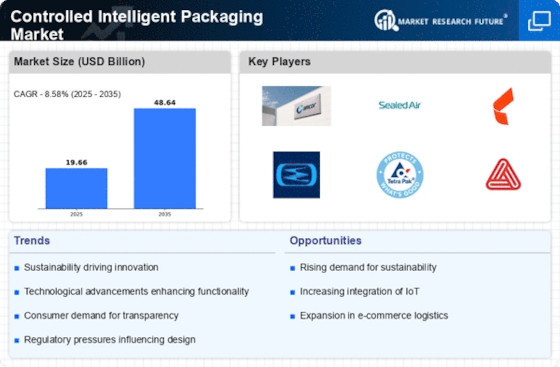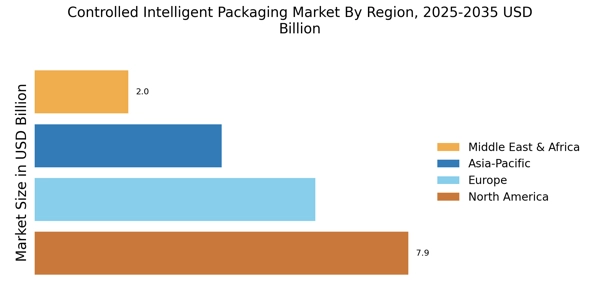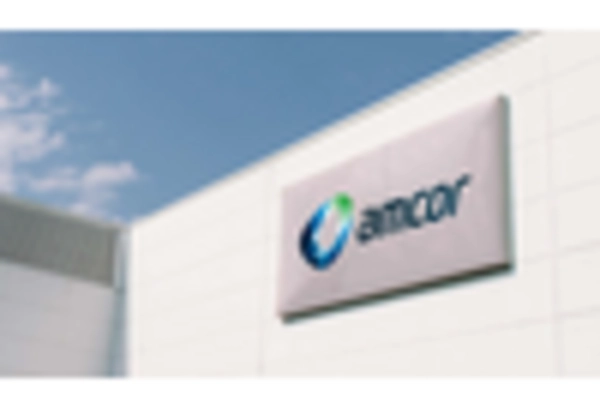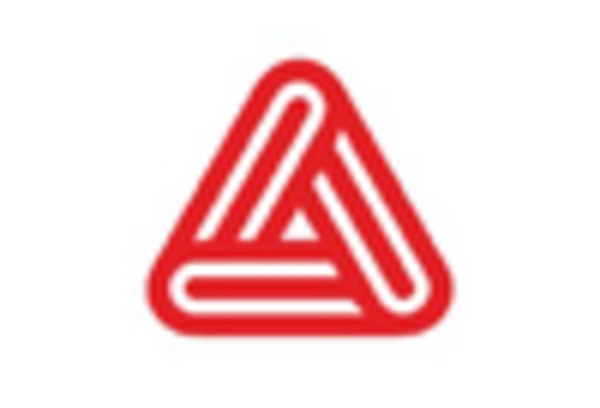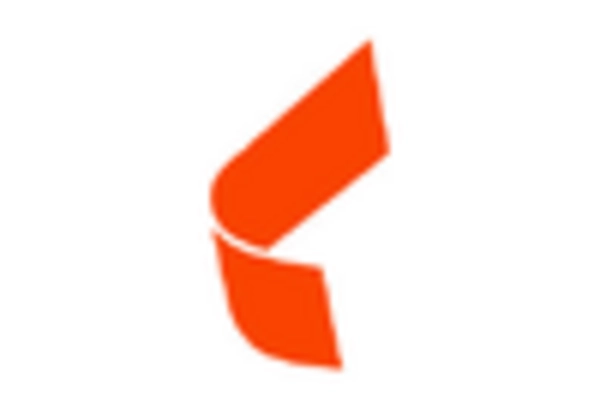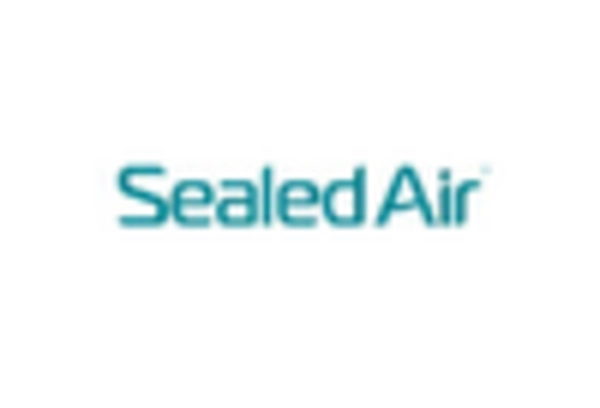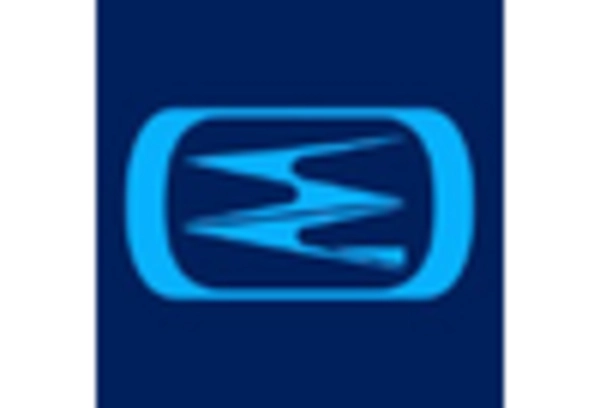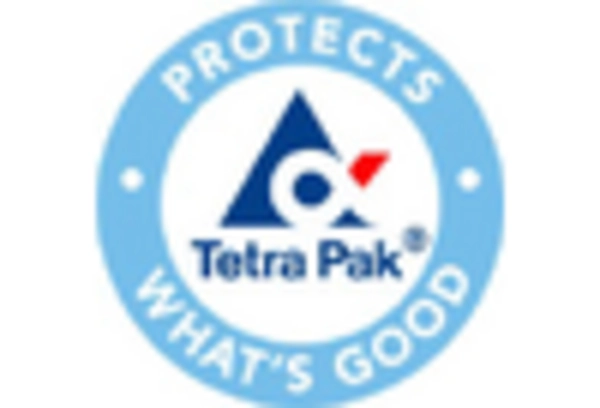Regulatory Compliance
Regulatory compliance is a critical driver in the Controlled Intelligent Packaging Market, as governments worldwide implement stringent packaging regulations. These regulations often focus on safety, labeling, and environmental impact, compelling companies to adopt compliant packaging solutions. The need to adhere to these regulations not only ensures consumer safety but also mitigates legal risks for businesses. As a result, companies are investing in research and development to create packaging that meets regulatory standards while also being innovative. The market is witnessing a trend towards transparency in labeling, with consumers increasingly demanding information about product ingredients and sourcing. This focus on compliance and transparency is likely to shape the future of the Controlled Intelligent Packaging Market, as businesses strive to align with evolving regulations and consumer expectations.
Supply Chain Efficiency
Enhancing supply chain efficiency is a significant driver in the Controlled Intelligent Packaging Market. Companies are increasingly recognizing the importance of packaging in optimizing logistics and reducing costs. Efficient packaging solutions can minimize waste, streamline operations, and improve inventory management. For instance, the adoption of standardized packaging sizes can facilitate better stacking and storage, leading to reduced transportation costs. Market analysis suggests that businesses that invest in efficient packaging solutions can achieve substantial cost savings and improved operational performance. As competition intensifies, the focus on supply chain efficiency is likely to drive innovation within the Controlled Intelligent Packaging Market, leading to the development of packaging solutions that not only protect products but also enhance overall supply chain performance.
Technological Integration
Technological advancements are playing a pivotal role in shaping the Controlled Intelligent Packaging Market. The integration of smart technologies, such as sensors and RFID tags, enhances the functionality of packaging solutions. These technologies enable real-time monitoring of product conditions, ensuring quality and safety throughout the supply chain. For instance, the use of temperature and humidity sensors can significantly reduce spoilage in perishable goods, thereby extending shelf life. The market for smart packaging is expected to grow at a remarkable rate, driven by the increasing demand for enhanced product tracking and consumer engagement. As businesses recognize the value of data-driven insights, the Controlled Intelligent Packaging Market is likely to see a proliferation of innovative solutions that leverage technology to improve operational efficiency and customer satisfaction.
Consumer-Centric Solutions
The shift towards consumer-centric solutions is a defining trend in the Controlled Intelligent Packaging Market. As consumers seek personalized experiences, packaging plays a crucial role in enhancing product appeal and usability. Brands are increasingly focusing on packaging designs that resonate with consumer preferences, incorporating features such as easy-open mechanisms and interactive elements. This trend is supported by market data indicating that packaging influences purchasing decisions significantly. Furthermore, the rise of e-commerce has necessitated the development of packaging that ensures product safety during transit while also being visually appealing. As a result, the Controlled Intelligent Packaging Market is evolving to meet the demands of a more discerning consumer base, leading to innovative packaging solutions that prioritize user experience.
Sustainability Initiatives
The increasing emphasis on sustainability within the Controlled Intelligent Packaging Market is driving innovation and adoption. Companies are increasingly seeking eco-friendly materials and processes to reduce their environmental footprint. This trend is reflected in the growing demand for biodegradable and recyclable packaging solutions. According to recent data, the market for sustainable packaging is projected to reach substantial figures, indicating a shift towards environmentally responsible practices. As consumers become more environmentally conscious, businesses are compelled to adapt their packaging strategies to align with these values. This shift not only enhances brand reputation but also meets regulatory requirements aimed at reducing waste and promoting sustainability. Consequently, the Controlled Intelligent Packaging Market is witnessing a surge in the development of sustainable packaging solutions that cater to both consumer preferences and environmental standards.


